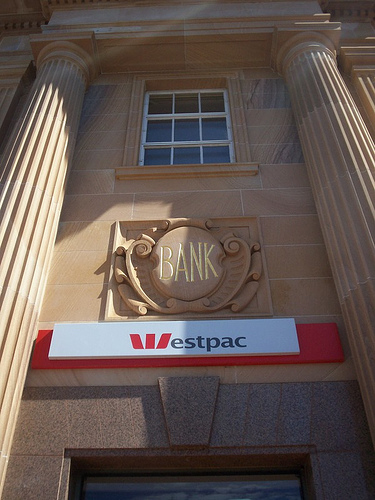Westpac trusts contractors with more work

Westpac has revealed that it will be aiming to pass more of its technology processes to its offshore suppliers, while aiming to manage them better.

(Westpac Bank (formerly Bank of New South Wales), Toowoomba-1 image by David Jackmanson, CC BY 2.0)
Westpac CEO Gail Kelly said that the bank would be making a fundamental change to its business model by moving more of its business functions offshore using external providers under a new "best sourcing" model.
Kelly said that the new model "at its heart involves systematically identifying and engaging the most skills and cost-efficient resources to identified functions or processes, whether they work for us directly or indirectly through one of our local or offshore partnerships".
Part of the reason for the strategy was the huge numbers of technology staff that the bank has brought on, but not managed as well as it would have liked.
"If you think about what we've done in recent times, then you can see our staff numbers in technology through our [Strategic Investment Program] has gone up by over a thousand over the course of the past couple of years. We've grown through contractors, and people have been brought to bear on our projects through suppliers to actually assist us with our work."
Rather than having suppliers just assist with work, Kelly said that the bank plans to give contractors more responsibility by taking pieces of work and providing them to suppliers who will then own that function and be measured and managed on an outcomes basis.
"We can actually get the flexibility and scalability [from] that scenario, and we can reduce our overall fixed costs. We also get innovation, and we also get the value add that suppliers bring in those areas."
To ensure that contractors understand the scope of the new work, the bank will have to spend a significant amount on up-front costs in 2012 to document its processes.
"At the moment, a lot of processes sit in the heads of individuals who've been in our organisation for a long period of time. We now take the time to document them really clearly so that as we hand that work over to the supplier, they have those processes and they then work to improve them to maximise the efficiency."
Once these processes are documented, it expects to see some of the benefits from the new sourcing model to emerge in 2013.
Kelly said that it is still too early to pin down the expected upfront costs and benefits, as the bank is still in discussions and contract negotiations with suppliers, but said that the benefits, efficiency and effectiveness would be significant.